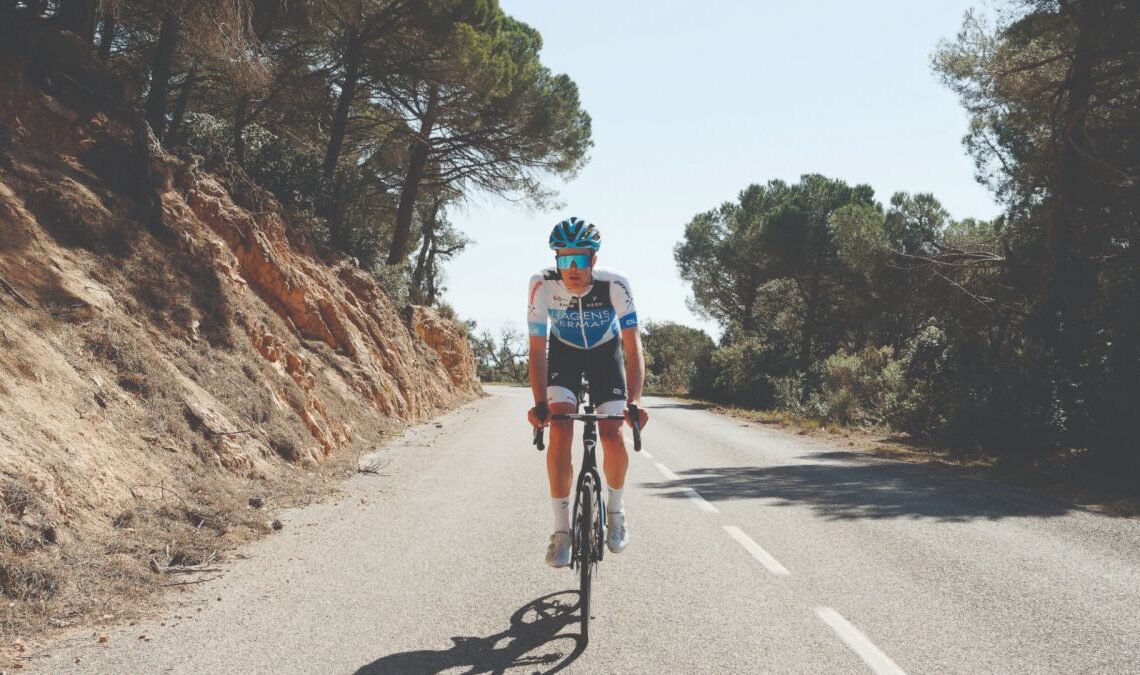“Do I have what it takes to become a professional cyclist?” It’s a question that most of us have pondered at some point, at least as a daydream or fleeting fantasy. From having the raw power, to the skill of riding in a bunch at high speeds, to committing to spending a large chunk of practically every day on your bike come rain or shine: there are plenty of factors to consider. But just how far-fetched is this dream? What is the difference between an ordinary cyclist and someone with the potential to take their cycling all the way? In other words, should you quit your job to become a full-time rider? Full-time rider Joe Laverick lays bare the reality behind the fantasy.
“What have I got to lose?” I asked myself when it came to choosing between chasing the pro dream or going to university. With a string of good results in the junior ranks, I knew I’d live to regret it if I didn’t go all-in on cycling. There is a ticking clock on my racing career, whereas I have the rest of my life to get a degree. Still, I knew it was a gamble.
For the sake of this article, we’re going to class Continental level riders as pros. Granted, many Conti riders also work part-time jobs to make ends meet, unable to support themselves solely from the proceeds of racing their bikes. It’s not until you make the ProTeam (formerly ProConti) ranks that a minimum salary comes into play: €27,500 for women and €32,100 for men. I’ve ridden for Continental teams for three years now, and my accumulated earnings don’t amount to a single year’s pay at the above rate. Nobody goes into pro cycling for the money.
At the time of writing, 17,738 Brits hold active race licences (from junior level up), but there are fewer than 150 British professional cyclists – that’s less than 0.85% of licence holders. Based on statistics alone, an amateur racer’s chances of turning pro are less than one in 100. So what does it take? Exceptional power, mental resilience and skill, of course – but that’s not all. In my opinion, the most important factor is a rider’s environment, the conditions that nurture their progress. Having supportive family and friends, enough money and access to opportunities: these elements, often beyond a rider’s control, are make or break. If you’re not dealt the right hand in life, you don’t stand a chance of going pro.
What’s the difference in performance between pro and amateur riders?
Dr Andrew Coggan’s power profile chart has…

